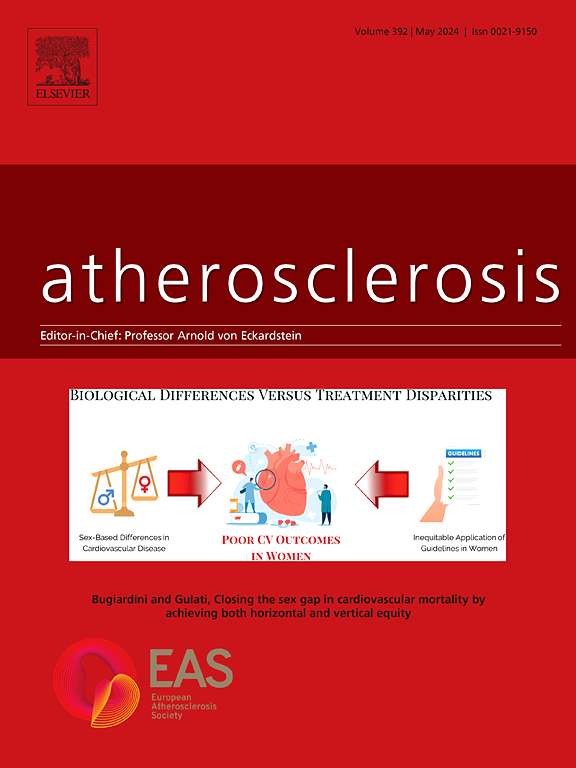The vicious circle of chronic kidney disease and hypertriglyceridemia: What is first, the hen or the egg?
IF 4.9
2区 医学
Q1 CARDIAC & CARDIOVASCULAR SYSTEMS
引用次数: 0
Abstract
Chronic kidney disease (CKD) is documented to cause alterations in lipid metabolism, and this was considered a potent driver of increased cardiovascular risk. Among the diverse alteration of lipid traits in CKD, research endeavours have predominantly concentrated on low-density lipoproteins (LDL) in view of the potent pro-atherogenic role of these lipoprotein particles and the demonstration of protective cardiovascular effect of reducing LDL. However, few studies have focused on the metabolism of triglyceride-rich lipoproteins and even fewer on their role in causing kidney damage. Therefore, the comprehensive description of the impact of hypertriglyceridemia (HTG) in CKD pathophysiology remains largely undetermined. This reflects the difficulty of disentangling the independent role of triglycerides (TG) in the complex, bidirectional relationship between TG and kidney disease. Abnormal neutral lipid accumulation in the intrarenal vasculature and renal cells eventually due to HTG may also promote glomerular injury, throughout mechanisms including oxidative stress, mitochondrial dysfunction and proinflammatory responses. While epidemiological and experimental evidence suggests a potential role of TG in kidney damage, the causal mechanisms and their clinical relevance remain unclear, representing a significant area for future investigation. This review aims to highlight the intricate interplay between TG metabolism and kidney disease, shedding light on the mechanisms through which HTG may influence kidney functionality.

求助全文
约1分钟内获得全文
求助全文
来源期刊

Atherosclerosis
医学-外周血管病
CiteScore
9.80
自引率
3.80%
发文量
1269
审稿时长
36 days
期刊介绍:
Atherosclerosis has an open access mirror journal Atherosclerosis: X, sharing the same aims and scope, editorial team, submission system and rigorous peer review.
Atherosclerosis brings together, from all sources, papers concerned with investigation on atherosclerosis, its risk factors and clinical manifestations. Atherosclerosis covers basic and translational, clinical and population research approaches to arterial and vascular biology and disease, as well as their risk factors including: disturbances of lipid and lipoprotein metabolism, diabetes and hypertension, thrombosis, and inflammation. The Editors are interested in original or review papers dealing with the pathogenesis, environmental, genetic and epigenetic basis, diagnosis or treatment of atherosclerosis and related diseases as well as their risk factors.
 求助内容:
求助内容: 应助结果提醒方式:
应助结果提醒方式:


